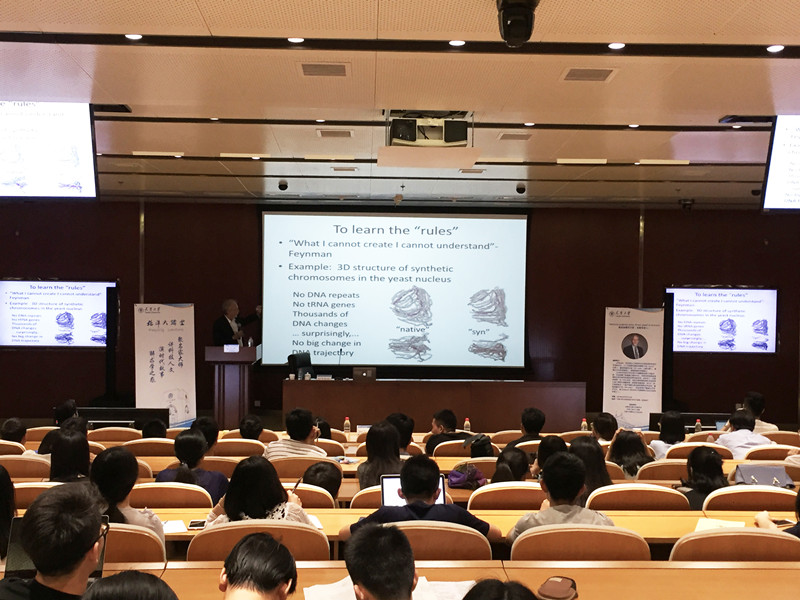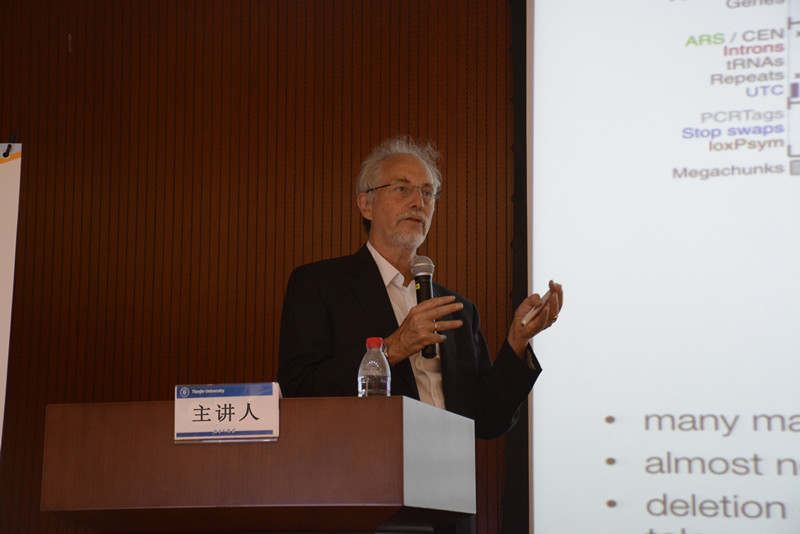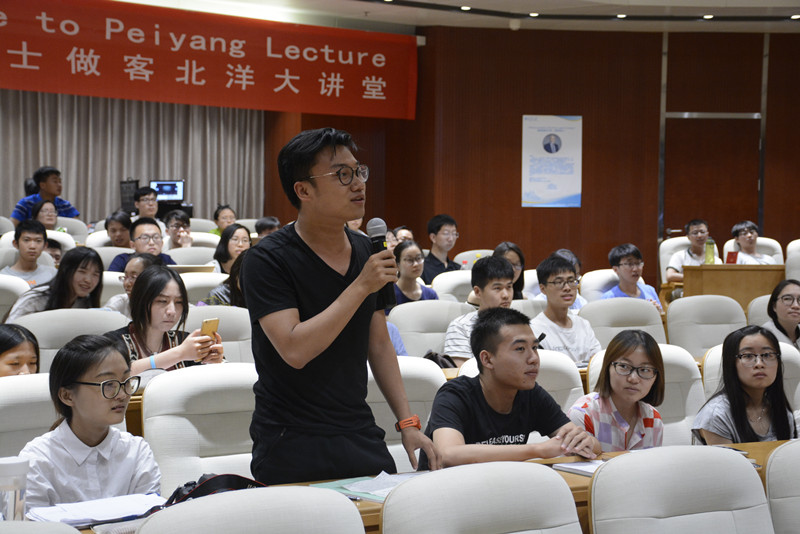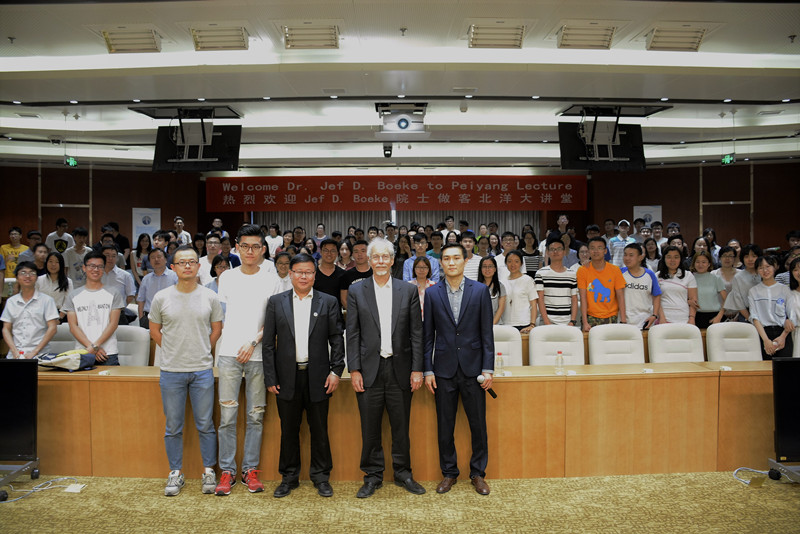Chinese scientists built four new synthetic yeast chromosomes and published papers as the cover story for Science’s March 2017 issue. Professor Yuan Yingjin from Tianjin University led TJU’s synthetic biology team to complete the synthesis of redesigned yeast chromosomes with two studies published. The publications are the part of the effort to chemically synthesize the designer genome (Sc2.0), which is being led by NYU Langone geneticist Jef Boeke, PhD.

On June 10th, 2017, invited by Prof. Yuan, Prof. Boeke delivered a seminar on synthetic biology in the Administrative Services Building of Peiyang Park Campus, Tianjin University. The seminar was sponsored by the School of Chemical Engineering and Technology to discuss the theme “Writing Genomes from Yeast to Human”.

Prof. Boeke introduced the Synthetic Yeast Project (Sc2.0) to the audience. He led an international team of collaborators in an effort to construct a synthetic version of the entire genome of Baker's Yeast, Saccharomyces cerevisiae. Experiments have demonstrated that drastic changes can be made to the genomes of yeast without killing them, and Yeast strains have survived experiments where sections of DNA were moved from on chromosome to another, or even swapped between yeast species, with little effect. As he demonstrated, the synthetic chromosomes were designed to be shorter and more stable than the original. The effort to complete all 16 chromosomes of S. cerevisae is currently underway and is reportedly half complete.
He also emphasized the contribution that TJU’s team has made, ascertaining that certain genetic alternations in the chromosome affect cell fitness and cause “bugs”, with debugging therefore being imperative for successfully building a synthetic genome. TJU has developed a highly efficient debugging method called pooled PCRTag mapping (PoPM) by using a pooling strategy and the Sc2.0 PCRTag system, which is generalized to watermarked synthetic chromosomes.

Talking about writing genomes from yeast to human, he brought up the question of whether we can humanize S. cerevisiae chromatin by nucleosome transplantation, because yeast and humans share high sequence identity. Then he explained the method to “humanize” budding yeast, where evolution and acquisition of mutations in cell – cycle genes promotes growth with human nucleosomes. He reached the conclusion that nucleosomes have evolved to be highly tuned to their own species’ chromatin interaction network, where the linker region characteristic of chromatin is specified by some combination of the chromatin remodelers and DNA sequence, not the histone protein sequence itself.

Many technologies developed in Sc2.0 serve as the foundation for GP-write, a related initiative aiming to synthesize complete sets of human and plant chromosomes (genomes):
“We aim to reduce the cost of designing, synthesizing, assembling and testing genomes by 1000 fold over the next ten years”, said Prof. Boeke, “such technology will revolutionize how we learn about the biological world - and engineer it”.
Jef D. Boeke is currently the founding director of The Institute for Systems Genetics at NYU Langone Medical Center. From 1986 to 2014 he was on the faculty of The Johns Hopkins University School of Medicine, where he was the founding director of the High Throughput (HiT) Center. He is a member of the American Academy of Arts and Sciences as well as the National Academy of Sciences.
Boeke is primarily known for his pioneering fundamental genetic and biochemical work on understanding the mechanisms of DNA transposition. He along with Gerald Fink discovered the mechanism by which yeast Ty1 transposable elements move via an RNA intermediate. He coined the term "retrotransposon" to describe transposable elements that move via this process. These retrotransposons are distantly related to retroviruses such as HIV.
By: Qin Mian
Editor: Yin Shiyu and Christopher Peter Clarke






